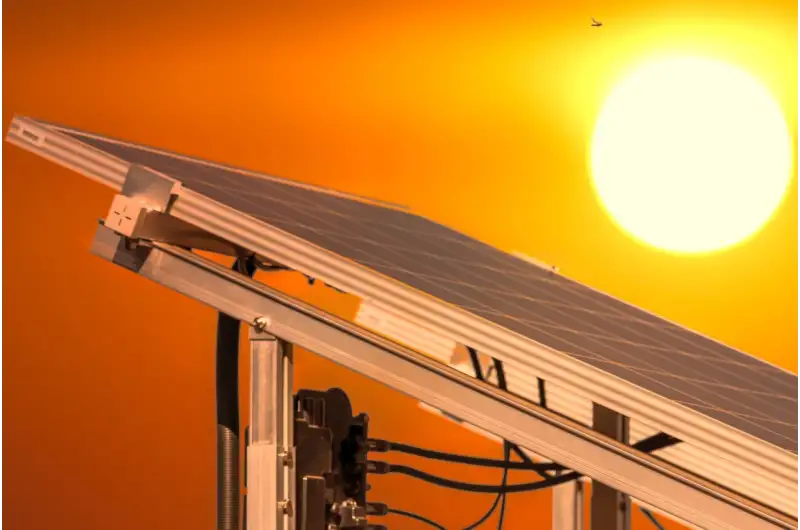NEWSWEEK
Nike is going for gold this summer as an official supplier for Team USA’s competition uniforms for the Paris 2024 Olympic following a string of problems with the company, including poor financial performance, job cuts and criticism over its products.
The sportswear brand took a kicking this spring for its Major League Baseball uniforms, with players complaining of color mismatches, see-through pants and fabric that changed after coming into contact with sweat.
It has even faced backlash for some of its Team USA designs, with the women’s running gear criticized for being too revealing. Chief innovation officer John Hoke said the company had designed its Paris 2024 track and field uniforms “to offer athletes a range of silhouettes tailored for various sport disciplines, body types and sizes, prioritizing performance and maximum breathability.”
Despite the bad press, Nike is confident the Games can help turn things around.
“The Paris Olympics offers us a pinnacle moment to communicate our vision of sport to the world. This is led by breakthrough innovation and announced by a brand campaign that you won’t be able to miss,” CEO John Donahoe said in June.
However, analysts told Newsweek this optimism may be misguided.
“The Olympics aren’t as big a deal as they once were for American audiences,” consumer behavior analyst Jason Voiovich said. “Nike’s hope that the Olympics will refocus American consumers on the brand is wishful thinking.”
In June, Nike reported a 2 percent decline in fiscal fourth-quarter revenues through May 31, totaling $12.6 billion, with Nike Direct revenues falling 8 percent to $5.1 billion.
For the year, revenues increased by 1 percent to $51.4 billion, up from $51.2 billion in fiscal year 2023, which saw a fourth-quarter increase of 5 percent to $12.8 billion.
Net income also increased by 45 percent to $1.5 billion. But this figure came about primarily due to large budget cuts, which included a 2 percent reduction in jobs affecting approximately 1,600 employees.
According to a report by The Oregonian, documents reveal that 40 percent of the people affected by the most recent round of layoffs at its Beaverton, Oregon, headquarters were vice presidents, directors or senior directors. Of the 700 jobs culled, 318 were at one of these levels, with an additional 24 assistant roles that support senior staff members.
In recent weeks Nike has warned that its revenue in the first half of its 2025 financial year would shrink, saying it would cut back on orders of its trademark Air Force 1 shoes as it focuses on newer, more innovative products.
Can the Olympics Help Nike?
Nike’s top team is hoping the 2024 Paris Games will shine a positive light on the brand, but experts aren’t convinced the Olympics on its own will turn around perceptions.
“Nike’s repositioning as an innovator with new and exciting products is inconsistent with its recent mass layoffs, especially of hundreds of vice presidents,” Ernan Haruvy, professor of marketing at McGill University, told Newsweek. “Layoffs at that scale and at that rank typically indicate that a company is looking to cut costs by shedding business units and refocusing on its most profitable units,” which he said, “goes counter to its message of innovation promoted at the Paris Olympics.”
While such a strategy might expand market share for “smaller, more niche brands like Lululemon,” which provided gear to Team Canada, it is unlikely to have the same impact on Nike, Haruvy said.
“Using the Olympics to expand brand reach would make sense for most companies, but not for Nike. Because of Nike’s near universal brand awareness, it is not likely to expand its brand awareness through Olympic promotion.
“Rather, its Olympic promotion is likely intended to enhance its innovative image and proprietary Air technology as well as serve as a defensive strategy to other athletic shoe companies, such as Adidas (Team GB), Puma (Team Jamaica) and Asics (Team Japan).”
Doug Zarkin, chief brand officer at The Good Feet Store, agreed that the work will have to go further than the 2024 Olympics. He told Newsweek that Nike needs to “emphasize genuine connections and community engagement” and “adopt strategies that resonate on a human level.”
“By thinking humanly, Nike can connect more deeply with its audience and inspire not just action but loyalty and passion,” he said.
He suggested strengthening grassroots initiatives through local community support and programs, instead of “solely relying on significant events like the Olympics.”
“Nike must transition from a ‘Just Do It’ mindset to a ‘Just Did It, Now What?’ strategy,” Zarkin continued. “The Paris 2024 Olympics is an opportunity, but it should be part of a broader, more comprehensive strategy to propel the brand forward.”
Despite its problems, Nike is unlikely to face a catastrophic downturn, Greg Silverman, global director of brand economics at Interbrand, told Newsweek.
He said that while recent misses “may have hurt short-term performance, it did not come at the expense of long-term brand equity.”
“Nike has built that equity through innovative tech, stylish products and the celebration of all those involved in sport,” Silverman continued, adding that if it taps back into its strengths, it can overcome its frustrations.
